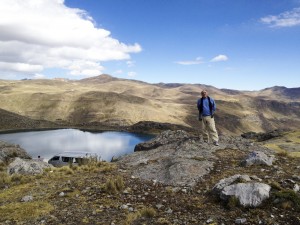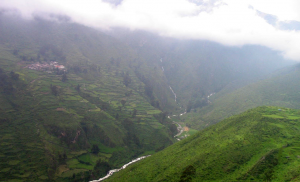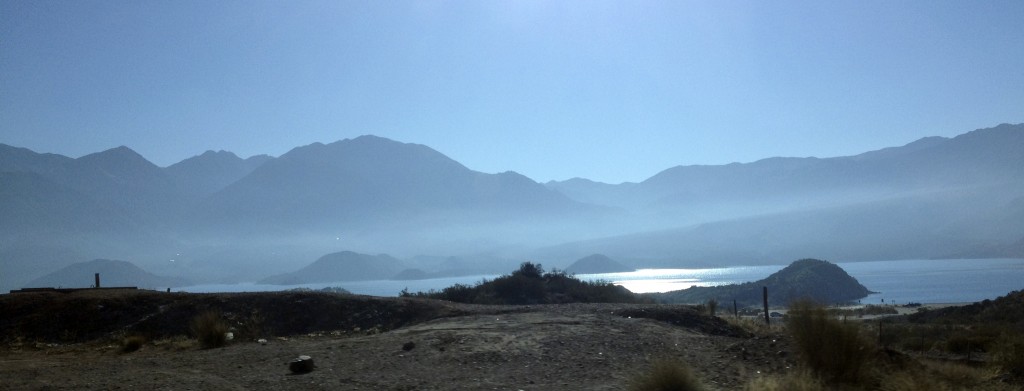
The American continent is one of the target regions of the International Water Security Network, which is looking at the extent to which – in the face of global change – communities across the globe can count on sufficient quantities of good-quality water. Working in tandem with its sibling project AQUASEC, the IWSN Americas team based at the Udall Center for Studies in Public Policy at the University of Arizona, is establishing collaborative partnerships across the continent.
These partnerships, formed with colleagues who also are part of the AQUASEC network (which also is based at the Udall Center), aim to:
- Explore the transboundary dimensions of the notion of water security.
- Conduct small, focused studies on specific issues relating to community access to water.
- Provide support to cadres of master’s level students, who participate in the above studies as part of their training.
- Create communities of practice comprising scientists, water managers, users, NGOs, and communitiy members, and seek to influence decisionmaking via organized science-policy dialogues.
- Enhance awareness of water security, and taking a page from AQUASEC’s long-term objective, “use knowledge to address uncertainty under evolving water security challenges”.
The active IWSN partners in Latin America are at institutions in Mexico (at El Colegio de Sonora, or COLSON, in Hermosillo, near the U.S.-Mexico border), Peru (Universidad Nacional Mayor de San Marcos, in Lima), Chile (Pontificia Universidad Católica de Chile, in Santiago), and Argentina (Consejo Nacional de Investigaciones Científicas y Técnicas, CONICET, in Mendoza). Research teams at each of these are led by faculty members who also participate in AQUASEC activities.

The overriding purpose of the IWSN Americas work package is to establish, strengthen, and mobilize a network of individuals, institutions, and programs working on water security. To initiate the regional activities, principal investigator Prof. Robert Varady of the Udall Center undertook a three-week trip in July 2014. His intent was to enlist the AQUASEC partners in this new IWSN effort and to define specific activities to be commissioned in each of the countries.
Between 28 June and 16 July, Varady met with scientists, students, and leaders of other regional networks. Team leaders Prof. Bram Willems of UNMSM in Peru, Prof. Francisco Meza and Dr. Sebastián Vicuña in Chile, and Prof. Facundo Martín and Dr. Paula Mussetta in Argentina all agreed to join IWSN and to conduct transboundary scientific projects, undertake postgraduate training, and convene public meetings in accordance with IWSN aims. Varady had visited COLSON and longtime research partner Prof. Nicolás Pineda earlier this year, in April, to work out an analogous set of activities in northern Mexico.
In addition to the hoped-for cooperative arrangements, three unexpected sets of linkages emerged.
First, the Peruvian team intends to send a Master’s student, Rossi Taboada, to be trained at one of the other IWSN partner universities, COLSON, to study with Prof. Pineda.
Second, the research project that grew out of discussions with the Chilean and Argentine colleagues is a transboundary study of the role of mountaintop snow that supplies water to Chile west of the crests and to Argentina, to the east. The partners agreed to undertake this effort jointly – an unsual cooperation in neighboring countries known for their mutual distrust.
And third, Richard Kamp, an associate of Varady’s and head of the environmental NGO, e-Tech International, is teaming up with UNMSM on a project in the northern Peruvian Amazon forest. There, an oil spill from a pipeline is affecting local Kukama Indian communities who are saying they saw large numbers of dead fish before and after the leak was reported. Prof. Willems and his group will be providing remote-sensing assistance to help analyze the impact of the operations.
Varady’s South American venture included two fieldtrips – one to a high-elevation Andean wetlands research site at Laguna Chinchón northeast of Lima in Peru; the other to the famed Andean foothills wine country south of Mendoza, Argentina. An added bonus was being in South America during the height of the World Cup tournament being held in Brazil, when eight of the last 16 teams were South American. Varady arrived in Mendoza on the afternoon of Argentina’s semi-final victory over the Netherlands, in time to watch the match and to witness the delirious crowds that evening.

